Brain & Breath II
a LECTURE on the neurobiology of
BREATH & CONSCIOUSNESS
$44
The breath is the pacemaker of experience, the pattern generator of our perceptual awareness and consciousness.
When I say consciousness, I’m not talking about a floaty abstract of elusive intelligence, I’m speaking specifically to the brains state of perceptual awareness and cognition that generates our experience of being alive; our experience of ourselves, of our memories, our experience of others and the world around us.
This rendition of Brain & Breath, I will specifically cover the neurobiology of using the breath as a tool to access transformative states of conscoiusness, and the healing capacity of these states when accessed through intentional self regulation of the body.
If you learned from & loved the first Brain & Breath lecture and wonder how this session will be different, this session will have a particular focus on how high ventilation breathwork, volitionally increasing the respiratory rate, can open up altered states of consciousness and allow us plasticity in renegotiating our relationship to agency, self regulation, and emotional processing.
This session is for anyone who practices, facilitates, or has ever experienced transformative states of consciousness with breathwork who would like to deepen their understanding of their own bodies capacity to be in an intentional relationship to consciousness.
Biochemistry of Breathing and Its Influence on the Brain
Understanding the biochemical processes involved in breathing.How oxygen and carbon dioxide regulation impacts brain function.The role of neurotransmitters and hormones influenced by breathing patterns.
Biomechanics of Breathing and Its Relationship to Stress
The physical mechanics of breathing and how they affect the body.The role of breathing in the stress response and relaxation.Techniques to optimize breathing for stress reduction.
Biological Relationship Between Breath and Conscious Awareness
How breathing patterns affect levels of consciousness and awareness.Exploring the mind-body connection through breath regulation.The influence of breath on cognitive functions and emotional states.
Mechanisms of High Ventilation Breathwork and Altered States of Consciousness
Understanding hyperventilation and its effects on physiology and psychology.The neurobiological mechanisms that facilitate altered states of consciousness through breathwork.Practical applications of high-ventilation techniques.
The Autonomic Nervous System as a Gateway to Altered States
Exploring the autonomic nervous system and its role in regulating breathing.How shifts in autonomic balance can lead to altered states of consciousness.Techniques to modulate the autonomic nervous system through breathwork.
Using Agency, Volition, and Self-Regulation to Repattern Conscious Experience
How to consciously control breath to influence mental states and perception.The role of volition and self-regulation in transforming conscious experience.Practical exercises for developing self-awareness through breath control.
Neurobiological Insights into Altered States and Conscious Intention
Exploring brain activity and neuroplasticity during altered states of consciousness.What happens in the brain during breath-induced altered states.Leveraging altered states with conscious intention for personal growth and self-regulation.
LECTURE contents:
$44

BRAIN & BREATH I:
AN ONLINE LECTRE ON THE NEUROBIOLOGY OF CONSCIOUS BREATHWORK PRACTICES
$44
Our breath is the bridge between our conscious experience and our biological body. Both ancient knowledge and modern scientific research provide evidence that modulating our breath is a powerful tool for embodying more presence, emotional transformation, stress resiliency, and immune function. Conscious breathing provides us evidence that our systems have the hard wired circuitry for metabolizing life organically, reclaiming our agency. Modern neuroscience research is beginning to elucidate the mechanisms of these powerful effects, allowing us more insight into developing agency over our experience and embodiment.
This course takes you beyond the basics, delving into up-to-date neuroscience research on the profound effects of conscious breathing on various aspects of your physiology.This course is for anyone who practices breathwork or breathwork facilitators who seek a deeper embodied understanding of the bodies response to conscious breathing.
LECTURE contents:
Uncover the latest research on how conscious breathing influences blood physiology on a molecular level.
Explore the neural circuitry involved in the respiration.
Gain insights into how breath modulation impacts vital functions controlled by the brain stem.
Explore how different breathwork modalities effect the nervous system, such as slow breathing (Coherence Breath) and high ventilation practices (Holotropic, Conscious Connected), and breath retentions (Tummo Breath, Wim Hoff method)
Understand how breath practices can influence the balance between the sympathetic and parasympathetic branches.
Learn how specific breathing techniques can support trauma recovery and resilience.
Understand how heightened awareness of internal bodily sensations and interoception contributes to overall well-being.
Up-to-Date Research: Stay on the forefront with insights from the latest neuroscience studies on conscious breathwork.
Practical Tools: Translate scientific knowledge into actionable techniques for immediate integration.
$44
WHAT PEOPLE ARE SAYING ABOUT BRAIN & BREATH
“I highly recommend. incredibly informative and a must listen for all breathwork facilitators”
-Andrea Lakeman Ford, Anxiety Coach
“such a beautiful, delicious drink of knowledge & learning. such a beuautiful way of creating a flow of the session and explaining everything. I have such a deeper reverence for the practice, our bodies, and brains. Thank you.”
-Salanya, Breathwork Facilitator
“Thank you for sharing these important insights with such passion and dedication, making the science accessible to be applied by practitioners all over the globe. Your ability to build that bridge is admirable and listening to your lectures is a treat to everyone interested in deepening the quality of their offerings!”
-Julia Pracht, Occupational Health Psychologist

about lana
about lana
I am a neuroscience researcher and educator, and my work focuses on the relationship between survival and consciousness: the nervous system as the instrument for our a conscious experience made manifest. I empericize poetics and aim to use neuroscience education for the embodiment of knowledge of the biological body for empowerment of the person in the biological body.
“Learn the rules like a pro to break them like an artist.”


